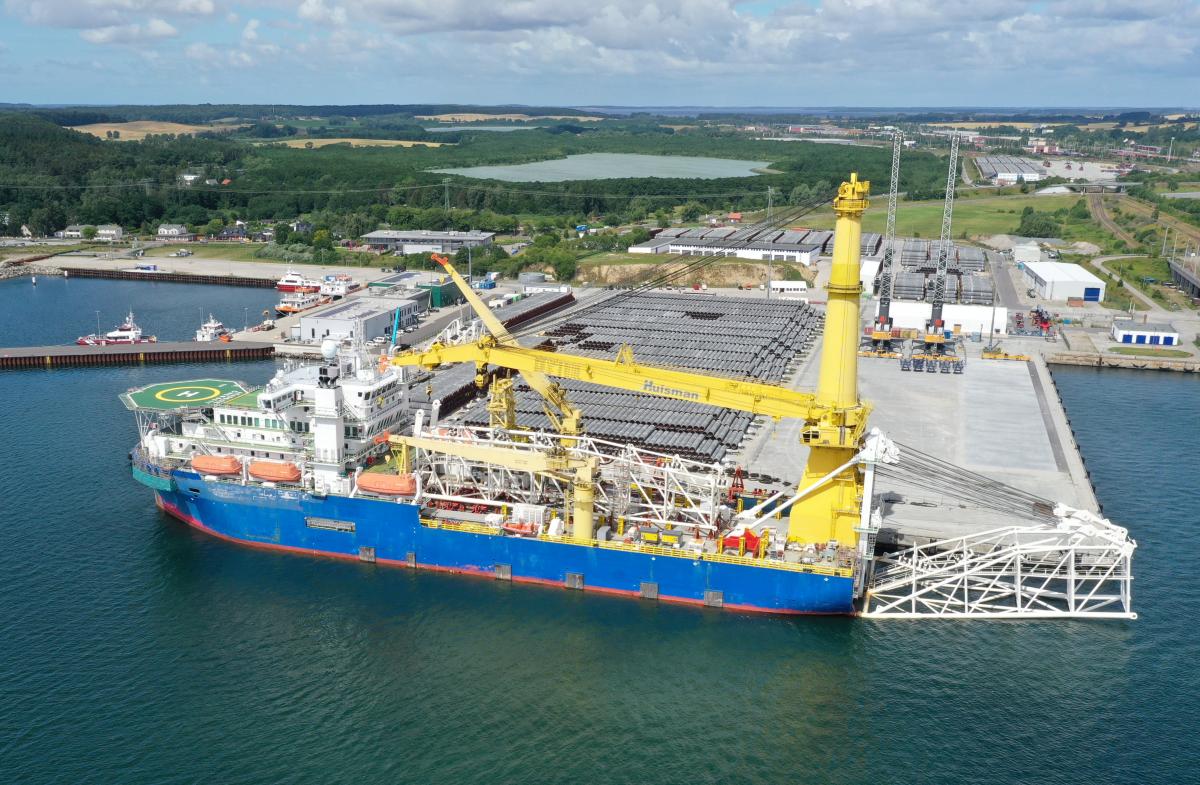
The European Parliament (EP) has demanded that sanctions against the Russian Federation should be strengthened and the construction of the Nord Stream 2 gas pipeline should be halted over the poisoning of Russian opposition politician Alexei Navalny.
This is stated in a resolution posted on the EP's website.
Read alsoGermany offers U.S. deal to waive sanctions against Nord Stream 2 – media
During the voting, 532 MEPs voted for the resolution, 84 voted against it. Another 72 abstained.
The document "calls on the Foreign Affairs Council to take an active stance on this matter at its meeting on September 21; demands that the EU establishes as soon as possible a list of ambitious restrictive measures vis-à-vis Russia and strengthens its existing sanctions against Russia; urges the deployment of such sanctions mechanisms as would allow for the collection and freezing of the European assets of corrupt individuals in accordance with the findings of Alexei Navalny's Anti-Corruption Foundation."
The resolution is not legislative in nature and is not legally binding on EU institutions and the governments of the EU member states.
Navalny poisoning: Background
On August 20, Russian opposition politician Alexei Navalny felt sick on board the plane he was flying from the city of Tomsk to Moscow. His rapidly deteriorating condition forced the captain to perform an emergency landing in Omsk. Two days later, he was evacuated from Omsk to Charite, a hospital in Berlin, Germany.
On September 4, it became known that experts from the German military's Institute for Pharmacology and Toxicology in Munich had found traces of a toxic substance from the Novichok group in samples of Navalny's blood, urine, and skin.
European politicians have repeatedly called on Russia to investigate Navalny's poisoning.
Further developments
- On September 4, ambassadors of all 30 NATO member states at a special meeting called for an international investigation into the Navalny case.
- On September 6, German Foreign Minister Heiko Mass told the Bild am Sonntag newspaper that he hoped that "the Russians won't force us to change our position regarding the Nord Stream 2" pipeline in connection with the poisoning of Navalny. Yet, he acknowledged that the refusal to complete the pipeline would harm the interests of a number of firms from Germany and other European countries.
- On the same day, Germany's Federal Minister of Defence Annegret Kramp-Karrenbauer said she was ready to discuss the issue of imposing sanctions against Russia, including regarding the unfinished Nord Stream 2 project.
- What is more, a representative of the German Chancellor said on September 7 that Angela Merkel did not exclude that the situation around the poisoning of Navalny could tell on the future of the Nord Stream 2 gas pipeline.
- On September 8, 2020, the Kremlin said they did not see grounds for negotiations with Germany on Nord Stream 2.
- On the same day, September 8, Polish Prime Minister Mateusz Morawiecki said that Germany should stop building Nord Stream 2.
- On September 9, 2020, Poland offered Germany an alternative to Nord Stream 2.
- On September 11, 2020, the German authorities announced that they were considering the suspension of Nord Stream 2 as a response to the situation with the poisoning of Russian opposition leader Navalny.
- On September 12, EU High Representative for Foreign Affairs and Security Policy Josep Borrell said that the decision to freeze the Nord Stream 2 gas pipeline was in the hands of Germany, rather than the European Union.
- On September 13, 2020, Denmark backed the halt of the Nord Stream 2 construction.
- On September 16, 2020, the Austrian president said that he did not see a link between Nord Stream 2 and Navalny's poisoning.

